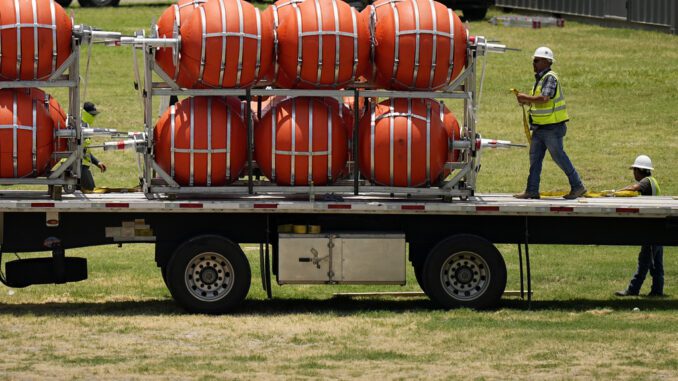
NEW ORLEANS — A federal appeals court allowed Texas’ floating barrier on a section of the Rio Grande to stay in place for now after a judge called the buoys a threat to the safety of migrants and relations between the U.S. and Mexico.
The order by the 5th U.S. Circuit Court of Appeals puts on hold a ruling that would have required Texas to move the wrecking-ball-sized buoys on the river by the end of this week.
The barrier is near the Texas border city of Eagle Pass, where Republican Gov. Greg Abbott has authorized a series of aggressive measures in the name of discouraging migrants from crossing into the U.S.
The stay granted by the New Orleans-based appeals court lets the barrier remain in the water while the legal challenge continues.
U.S District Judge David Ezra of Austin ordered Texas to move the roughly 1,000-foot barrier out of the middle of the Rio Grande and to the riverbank, calling it a “threat to human life” and an obstruction on the waterway. The Mexican government has also protested the barrier.
In seeking a swift order to allow the buoys to remain, Texas told the appeals court the buoys reroute migrants to ports of entry and that “no injury from them has been reported.” Last month, a body was found near the buoys, but Texas officials said preliminary information indicated the person drowned before coming near the barriers.



